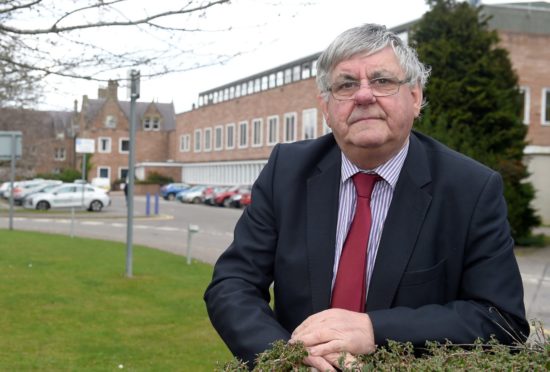A former head teacher turned councillor has called on Highland Council to set up an engagement programme for Easter to help young people settle back into school after the latest lockdown.
Councillor Graham Mackenzie is the former head of Dingwall Academy, and says he’s seriously worried about the impact of the pandemic on young people and their mental health.
He is calling for High Life Highland to get involved with its furloughed staff and Active Schools co-ordinators in opening up buildings across the region and enabling a range of activities for primary and secondary pupils.
Ideally, the programme would be over a few days around Easter time and could be funded by the education department’s projected underspend.
Mr Mackenzie said: “Young people these days are used to socialisation in a way that older generations never were.
“Although they have their social media, it’s far from being the same thing as direct interaction and comment with each other.
“They were locked down for much of last year with a break in the summer, and now they’re into it again.
“It seems to me that as well as a return to learning we need to have a return to interactions, to socialisations, to talking with each other.”
Mr Mackenzie envisages a broad range of activities which could be safely be offered in playing fields, drama studios, gyms and games halls, with rooms opened for practical activities such as woodworking.
He said: “We need to get these young people back in and able to express themselves again.
“It’s about sharing anxieties and re-building confidence.
“I’ve been expressing this wish to officers for some time and have received pleasant words back, but nothing has been taken up.”
Mr Mackenzie said he suspects finance is at the bottom of the council’s inertia.
“I know why they would have concerns about finance, because in the current circumstances all of the areas need deep-cleaned after each usage.
“That’s expensive and many of the cleaners aren’t contracted to work during the holidays.
“But these are financial problems and I don’t feel they should intrude on what is a societal problem.
“We’re budgeted to come in close to a £2m underspend on our education budget, so if there are any doubts about the Easter programme, there is the money to pay for it.”
The programme would be voluntary, and there would be no need for outcomes- “but we’d get them anyway,” Mr Mackenzie said.
“Our young people need to reintegrated, allowed to do what they’re good at and that includes caring for each other, talking to each other and discussing what’s going on in the world.”
Education committee chairman councillor John Finlayson said the council’s main priority is the safe return of children to all early years settings and the return of P1-P3 children.
He said: “We are awaiting Scottish Government guidelines on composite classes and the safe return of senior phase students (S4-S6) who will return on a part time basis, up to 5-8% of the secondary school roll at any one time and for essential practical activities for certification. We will continue to provide in school remote provision for our key worker and most vulnerable learners.”
He did not rule out the type of engagement proposed by Mr Mackenzie.
He said: “We continue to engage and listen to our children and young people, staff, parents and partners to identify what and if additional support during the holiday period is required and given the importance of physical exercise and sport and other activities to improve wellbeing and mental health, we will look at all the possibilities which are permitted, within the Covid restrictions to support our young people.”
He went on: “For all children and young people, we will continue to focus on health and wellbeing, educational experiences including the promotion of key skills, and mitigating against the gap.
“A whole systems approach to mental health and wellbeing is in development and will be a key part of building upon the integrated approach that has grown during the joint response of communities and partners during the pandemic.
